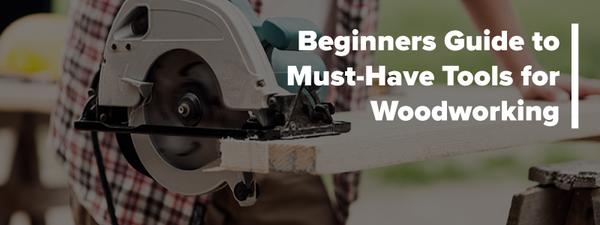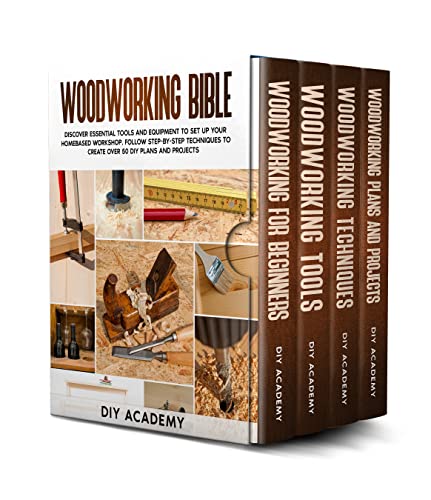A woodworker needs various tools, including saws, chisels, drills, planes, and measuring tools, among others. These tools help to shape, cut, and join wood pieces to create furniture, cabinetry, and other wooden items.
Woodworkers also require materials such as wood, glue, sandpaper, and finishing products to complete their projects. The art of woodworking requires precision, skill, and patience to produce quality work. A woodworker must have a good eye for detail, be able to read and interpret plans and blueprints, and have a good sense of design.
They also need to be knowledgeable about the different types of wood, their characteristics, and their applications. With the right tools, materials, and expertise, a woodworker can create beautiful and functional pieces that will last for years to come.

Credit: www.yorksaw.com
Measuring Tools
Measuring tools are a must-have for any woodworker’s toolkit. Tape measures are essential for getting accurate measurements for length and width, and come in a variety of lengths. Combination squares have a ruler and a 90-degree angle, perfect for measuring and marking square lines.
Marking gauges allow woodworkers to make precise marks on wood, helping with accuracy. Lastly, calipers are ideal for measuring thickness and diameter when working with small parts. Overall, measuring tools play a crucial role in any woodworking project and can make the difference between a successful build and an amateurish, error-filled one.
Choose your measuring tools wisely and invest in quality equipment that will last for years to come.
Cutting Tools
A woodworker requires various cutting tools for their craft. The handsaw is a traditional tool that can cut straight lines through most woods. A jigsaw has a blade that can move in different directions, making it handy for cutting curves.
Band saws have a continuous band blade, and they can cut irregular shapes. Circular saws are heavy-duty power saws that can cut through thick wood. Miter saws are specialized power saws that can cut at angles, making them ideal for trim work.
Finally, table saws are powerful tools that can cut through thick, large pieces of wood with precision.
Joinery Tools
Every woodworking enthusiast needs certain tools. Joinery tools are one of them. One of the tools that come under joinery tools is chisels. These are used to chop off the wood to form neat cuts. Another device that is beneficial for joinery is a handheld router.
It helps in cutting and shaping wood in different ways. Pocket hole jigs are also important to join thin pieces of wood efficiently. Last but not least, dowel jigs; a useful device used to connect wood pieces without tools. All these joinery tools are necessary for woodworkers to create a perfect masterpiece.
Sanding And Finishing Tools
Woodworkers need tools for sanding and finishing, such as sandpaper, sanding blocks, and sanders like belt, disk, and palm sanders. Brushes and rollers are essential for applying stains, while varnish or oil finishes are necessary for a professional and long-lasting result.
Using high-quality tools will ensure your project looks clean and precise.
Safety Gear
To stay safe while woodworking, you’ll need a range of protective gear. For eye protection, use goggles or glasses. Consider ear protection with ear muffs or plugs. A respirator is essential when working with any type of saw or sanding.
Gloves are crucial to protect your hands from splinters. Use a dust collector with a mask to avoid inhaling sawdust or other particles while working. Use these to stay safe and prevent accidents.
Frequently Asked Questions On What Does A Woodworker Need?
What Are The Essential Tools For Woodworking?
A woodworker needs essential tools like a saw, a chisel, a hammer, a measuring tape, a plane, a level, and a square.
What Type Of Wood Is Best For Woodworking?
The type of wood that is best for woodworking depends on the project. Popular woods include maple, oak, cherry, and walnut.
How Do I Choose The Right Wood For My Project?
To choose the right wood, consider the project requirements, including durability and aesthetics. Look for quality, straight boards free of knots and cracks.
What Safety Gear Do I Need For Woodworking?
Safety gear is crucial in woodworking to protect against injury. It includes eye and ear protection, dust masks, and gloves.
Do I Need To Have Experience For Woodworking?
Experience is not necessary for woodworking, but it takes time and patience to develop the necessary skills. Start with small, simple projects and build from there.
Conclusion
After exploring the essential tools and materials necessary for woodworking, it’s clear that the craft requires a great deal of precision and attention to detail. Woodworking demands patience, creativity, and a willingness to learn. Novice woodworkers must invest in foundational tools such as saws, planes, and a good workbench.
Seasoned woodworkers, on the other hand, need a broader and more specialized toolkit that includes chisels, carving knives, and a lathe, among others. Quality materials are also paramount for producing high-quality woodworking projects. Additionally, woodworkers must ensure their safety in the workshop, and that their equipment is well-maintained and in good working order.
Ultimately, woodworking’s rewards and benefits are tied to the effort and dedication put into it. With time and practice, the skills learned in woodworking can be utilized to create beautiful and functional pieces of furniture and art.
